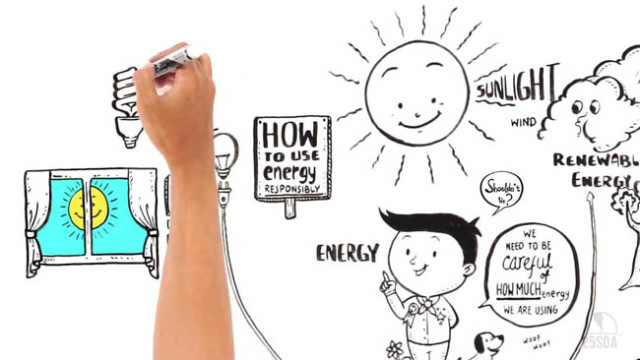We permit our voices to indefinite aspects in our day-to-day life like inflation rates, politicians’ wrath, cost of basic amenities shooting up, and so on. As much as it is shiftless to abandon these concerns, however we have timelessly let our consciences miss any thoughts on something as important as energy conservation.
How embarrassing it is to bring in to reality the fact that we still remain so apathetic to the potentiality of day-to-day trifling compromises resulting in energy conservation. The rise of the ability to draft and employ different forms of energy crawled in since the first appearance of the Industrial Age when the dream of transforming billion lives was felicitated. Satisfactory levels of comfort and mobility mediated an unparalleled human history, thereby, enabling humans to perform increasingly productive tasks. For most of the last twenty decades, the unfaltering acceleration in energy consumption has been closely linked to ascending economic opportunity in much of the world, so much as to declare 14th December as the World Energy Conservation Day. However, humanity now has to come to terms with an immense energy challenge. It is now largely being felt, better late than never, that energy consumption might take up the responsibility of a qualified life but not on a permanent basis.
Overall, at least one-fourth of the world’s population currently survives without electricity and this number has hardly fluctuated since 1970. The electricity required for people to walk by streets at night or pump a minimal amount of drinking water would be an aggregate of less than 1 percent of total global energy demand.
Thus 21st century has dished out a two-fold energy challenge to the economies coming into prominence: Providing the needs of billions of people who are still short of the fundamental, contemporary energy services while simultaneously engage in a global tonality to clean, low-carbon energy systems.
To expect any such historic progress, one has to believe the Government alone cannot do the needful but it is us who must divulge more towards an increased efficiency, de-carbonization, greater fuel diversity and lower pollutant emissions.

Image source : Youtube
So what are the some unconventional or conventional ways to conserve energy? (Caution read – it might cause a little setback to your lifestyle ambitions, but then it is worth it)
- Switch light bulbs inside the house with fluorescent bulbs. Fluorescent bulbs come at a price more than that of traditional ones but they are long lasting and use about 70% less energy.
- Settle to ceiling fans. We don’t need science to know air conditioners use more energy.
- Use local vehicles for transportation or just walk for shorter distances. You have a car but instead you choose to travel by bus or walk by to the nearby store; inspired by which your friends and others from your circle happen to do so. Now that is not only cost cutting and preventing air pollution but who doesn’t like to be an inspiration?
- Invest in renewable energy, such as solar power or wind power.
- When you want to build a house which would look good, you have to know about green architects. Not always artificial enormously energy-consuming materials compliment a house. Green architecture makes the effect of natural light as great as possible and uses alternative, renewable energy sources, such as solar and wind power.
- Manage waste wisely. Each of us generates almost 590 kilograms of waste per year. We must dump all the non-renewable and renewable garbage separately.
- Use paper bags or cloth bags while shopping. They are a smart way of preventing yourself from the usage of plastics.
- For some kitchen rules, turn off the stove or oven five to 10 minutes before cooking time is up and let trapped heat finish the cooking.
As much as we realize the strength of renewability, we must see also understand that the choice is quite transparent here. Either we believe in subscribing to unhealthy use of energy or prevent our future from doing so. And this is where Governments need to cooperate more. Sustainable energy policies are probable of displaying more success if they also contribute towards societal and economic development objectives and that is why Governments should be oriented in the direction of maximization of positive interactions where they exist.
After all, Sustainability is not even a lesson but a mere reflection of your moral. And it applies to all.































